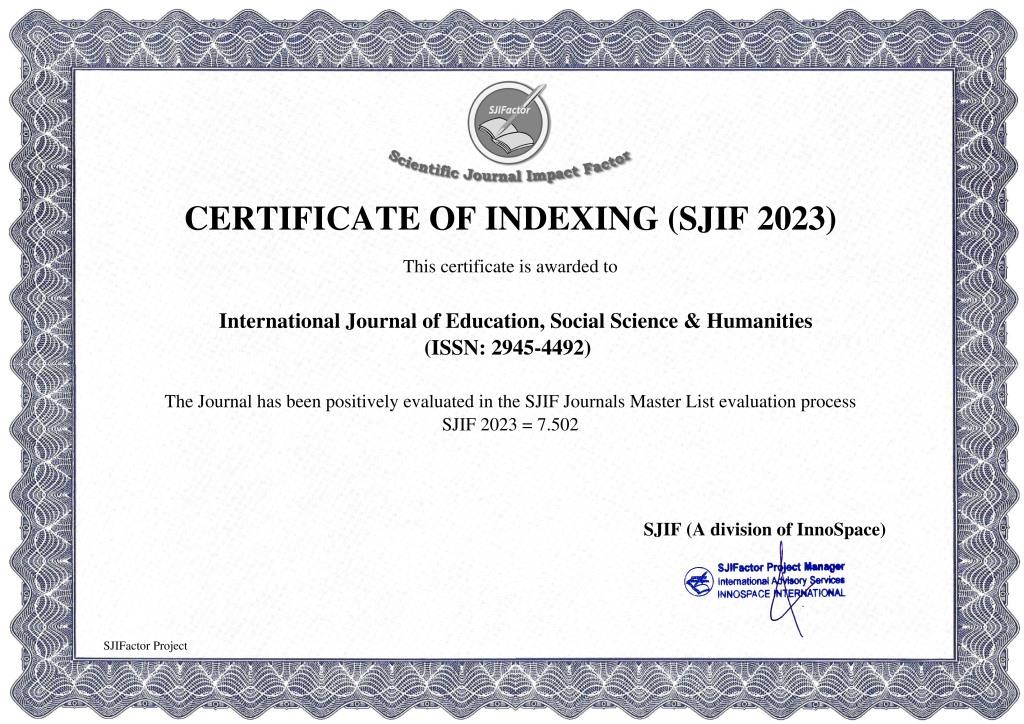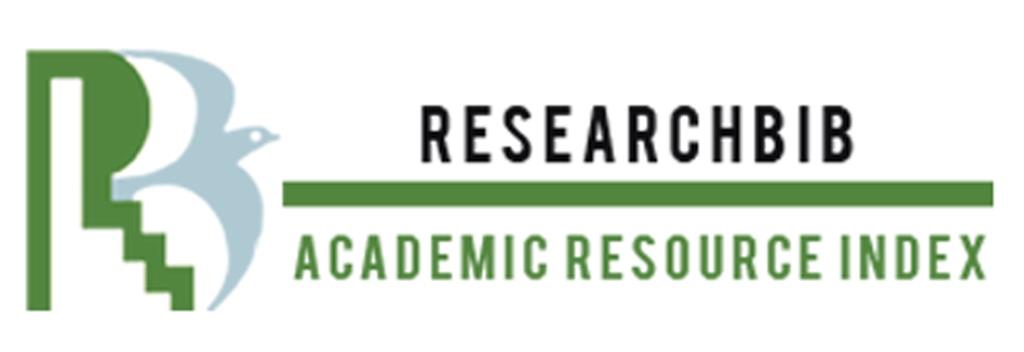THE DEVELOPMENT OF MORAL QUALITIES OF FUTURE DOCTORS
Keywords:
Spiritual medicine, future doctor, self-consciousness, morality of the doctor and medical and pedagogical influence.Abstract
The development of professional and spiritual qualities aimed at the manifestation in students of a conscious attitude to the necessary spiritual and ethical standards in the process of solving professional problems. Also, personally significant positive values of students are formed with purposefully organized impact both on the conscious and subconscious levels.
The purpose of the study is to consider the educational potential of the works of Eastern thinkers in the field of "Al-Adab" in the bringing up of future doctors in terms of impact on the conscious and subconscious levels.
Methods: Meta-analysis of the works of Abu Yusuf al-Kindi, Abu Bakr Muhammad al-Razi and Abu Ali ibn Sina, method of meaningful integration, observation method, analysis, synthesis.
Results: A matrix of professional and spiritual qualities of future doctors was determined based on the content integration of the “Oath of the Doctor of Uzbekistan” and the “Ethical Rules of the Andijan State Medical Institute”. An exemplary theme of classes for tutors has been developed in order to develop the spiritual and moral qualities of students in the form of optional education.
Conclusion: Thus, the upbringing of an ethical attitude towards the patient is manifested in the practical activities of doctors only if the “need-stimulus-motive” system of professional and personal growth and a value attitude to the professional activities of students are properly launched.
References
Abdurakhmanov F. Development of psychological thought in the countries of the Ancient East. - Tashkent: Teacher. 1995. P. 78
Acmeology. - St. Petersburg: Peter, 2003.
Arndt Büssing, Almuth Tabea Hirdes, Klaus Baumann, Nils Christian Hvidt, Peter Heuser, "Aspects of Spirituality in Physicians and Their Relation to Specific Perspectives on Disease and Their Relation to the Individual Situation of Their Patients", Evidence-Based Complementary and Alternative Medicine. 2013, 10 pages https://doi.org/10.1155/2013/734392
Dr. Aneta Barakoska, PEDAGOGICAL AND PSYHOLOGICAL BASIS OF MORAL EDUCATION International Journal of Cognitive Research in science, engineering and education Vol. 1, No.2, 2013. www.ijcrsee.com.
Anthology of world philosophy. T. 1. P. 712
Akhmedova N.D. The role of ethical culture in the professional activities of a doctor // Universum: psychology and education: 2021. 6(84). URL https://7universum.com/ru/psy/archive/item/11855
Ahmedova Nigora Dadahonovna "The need to develop a model for the professional development of future doctors" European journal of molecular & clinical medicine issn 2515-8260 volume 08, issue 1, 2021 1333-1340p https://ejmcm.com/article_6932_
Derkach, A. Acmeology [Text]: textbook. allowance / A. Derkach, V. Zazykin. - St. Petersburg. : Peter, 2003. P. 256
K. Dörner, Der gute Arzt. Lehrbuch der ärztlichen Grundhaltung, Schattauer, Stuttgart, Germany, 2001.
Dinorshoev M., Abubakr ar-Razi and his "Spiritual Medicine"//Abu Bakr ar-Razi. Spiritual medicine. - Dushanbe: Irfon, 1990.
Zimnyaya I.A. Key competencies - a new paradigm of the result of education / / Higher education today. 2003.–№5.–P.12-13. Raven J. Competence in modern society: identification, development and implementation./J. Raven M.: Kogito-center, 2002. –396 p. Hutmacher Walo. Key competencies for Europe//Report of the Symposium Berne, Switzerland 27-30 March, 1996. Council for Cultural Cooperation (CDCC) //Secondary Education for Europe Strasburg, 1997. Anderson, J. (1988). Communication competence in the small group. In R. Cathcart & L. Samovar (Eds.), Small group communication, A reader. Dubuque, IA: Wm. brown.
Ibn Sina. Canon of Medicine. Tashkent: Fan 1985. Book. 1. - P. 6.
Ibn Sina. Donish name. - Stalinabad, 1957. - P. 235.
History of Tajik philosophy. From ancient times to the XV century. In 3 volumes. Dushanbe, 2012. T 2 P. 45.
Kuldasheva G.D. Assessment of educational activity motivation of medical institute students. Modern education. 2015, No. 9. P 21
M. Kuronov and others. “Spiritual education: an anthology (on the basis of the spiritual and educational heritage of the thinkers of Central Asia in the education of a harmoniously developed generation). Tashkent, 2014. P 631
G. Mayo, Mittelpunkt Mensch-Ethik in der Medizin. Ein Lerbuch, Schattauer, Stuttgart, Germany, 2012
L.M. Mitina Psychology of the teacher's professional activity: a systematic personality-developing approach. West. Moscow University Ser Pedagogical Education 2012 No. 3 https://cyberleninka.ru/article/n/psihologiya-professionalnoy-deyatelnosti-pedagoga-sistemnyy-lichnostno-razvivayuschiy-podhod
T. Uexküll von and W. Wesiack, Theorie der Humanmedizin, Urban & Schwarzenberg, München, Germany, 1988.
Moral Education - A Brief History of Moral Education, The Return of Character Education, Current Approaches to Moral Education StateUniversity.com.
Rakhimova Yu.E. Formation of professional competence of students of medical colleges. A-ref diss. Uch. Cand. Ped. Sciences. T-: 2012. P 24.
Usmonkhzhaev A. Spirituality of medical practitioners. - T.: Generation of the New Century, P 276














